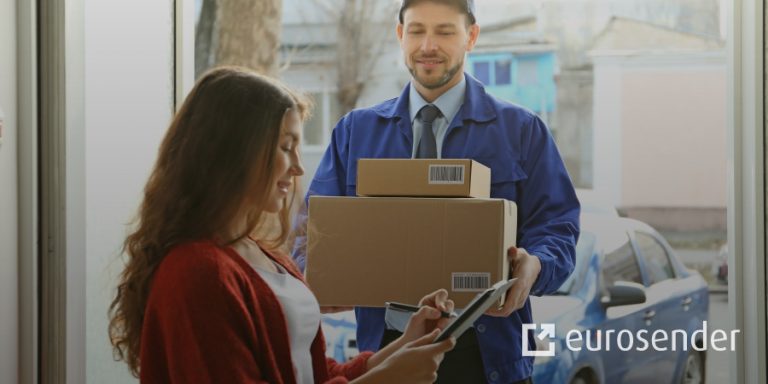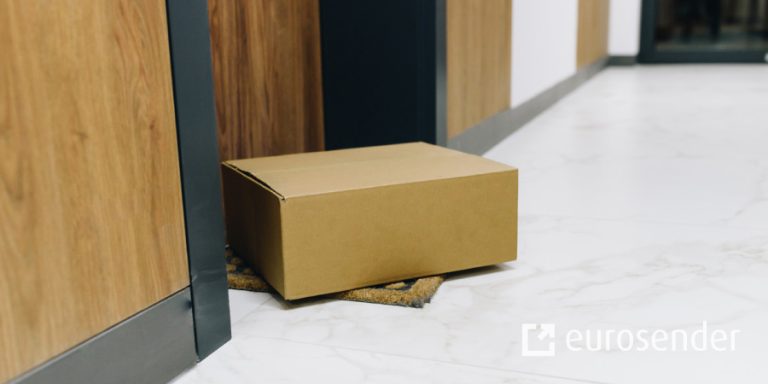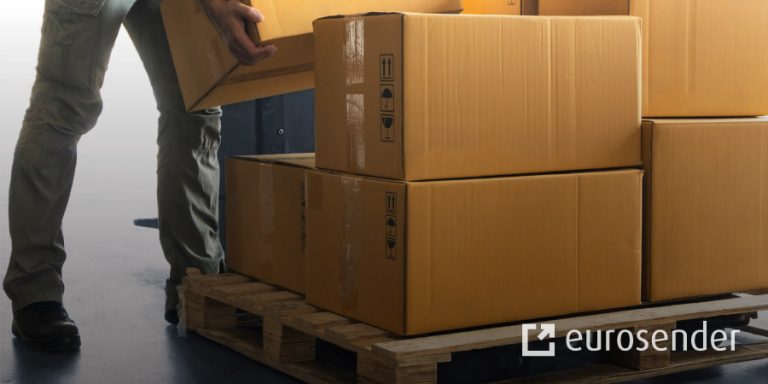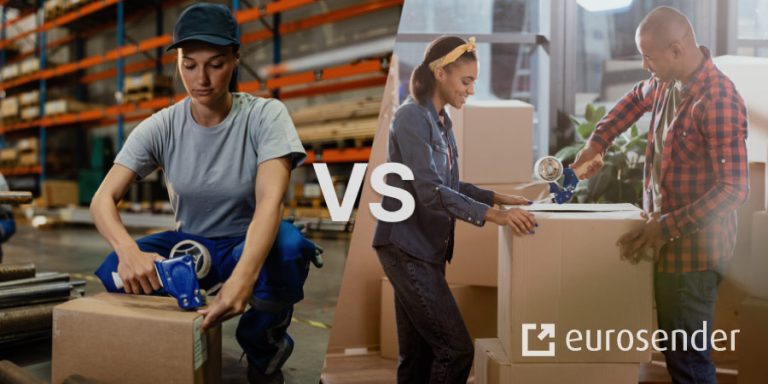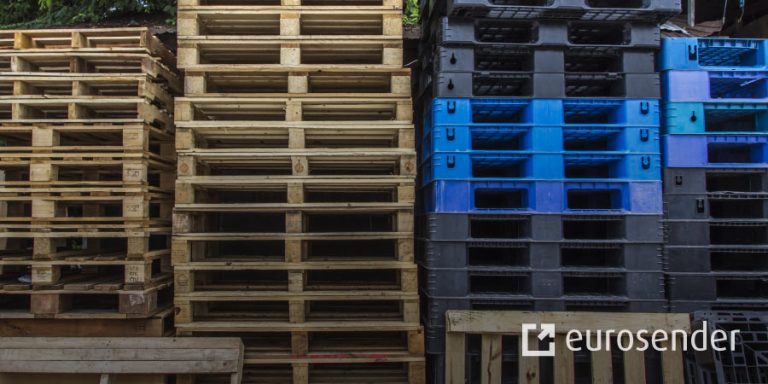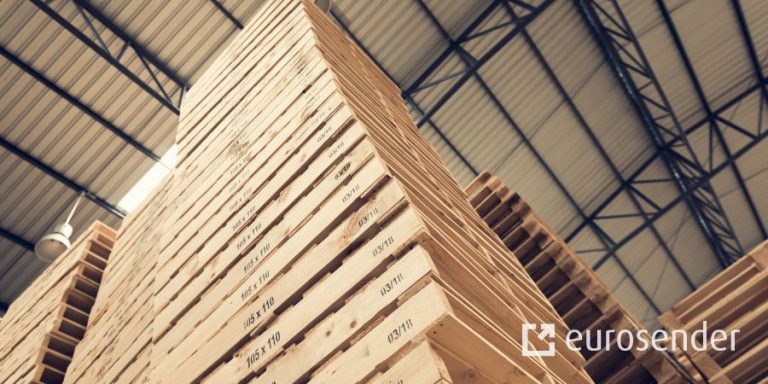5 Reverse Logistics Examples | Importance of Reverse Logistics
TL;DR
- Reverse logistics involves returning goods to warehouses for reasons like damage or customer returns.
- Companies like H&M and Apple implement sustainable practices through recycling and refurbishing returned products.
- Reverse logistics improves sustainability, helps recover product value, and enhances customer feedback for companies.
- It is essential for e-commerce success, as a smooth return process fosters customer loyalty.
Create an account for free!
Many consider that the importance of reverse logistics lies within the complex processes of supply chain management. Eurosender is here to simplify it and explain what the reverse logistics process means with company examples.
Reverse courier pickup and delivery mean that the goods are picked up from a specific location and go backwards in the shipping processes to the warehouse or other designated place by the company.
Some of the reasons why the goods go reverse in the logistics shipping process:
- The products to be shipped are damaged, don’t match the description or simply, the customer no longer needs them,
- The returned goods have to be stored,
- Further processing of the returned goods.
Often, companies take an extra step towards sustainability by further processing the already existing products. By recycling and further processing already existing products companies positively contribute to the environment and its waste.
You may want to read more about:
By collecting old distributed products, clothing companies like H&M, G-Star Raw, and other retail companies reuse the products and transform the old components into new material, reducing both waste and costs of production.
Eurosender reverse logistics solution
Optimise your shipping processes with our solution. Through a simple integration, your business will be empowered to organise shipments automatically with the help of our API. Our technology will connect you to over 150 million pre-negotiated quotes, saving time and operational resources that are essential for your growth.
If you are a business looking for a reliable carrier to take upon your logistics processes, we invite you to look at our portfolio of services. We work with a vast network of logistics providers, and we can meet any of your shipping requirements, regardless of the shipment size.
Are you wondering how does the reverse logistics shipping process contribute to this? Here are some examples.
Company reverse logistics examples
Many famous brands and companies have realised how strictly linked reverse logistics and sustainability are, such as H&M and Apple:
- Recycled clothing lines. H&M places drop-off points in every store to collect used clothes, which will then be used to create a recycled clothing line.
- Recycled gadgets. Whenever a customer wants to buy a new device in-store, Apple offers a discounted price if the old product is returned: the material will be recovered and used to produce a new one.
- Outlet stores. Some companies have designated places where they sell their products at discounted rates. Normally these are items that were returned to the seller because of faulty items or due to the season change.
Reverse logistics examples with courier companies
- The Return Service offered by GLS is meant for businesses and e-commerce. The courier takes care of returning the products or goods by picking them up from the customers directly. They will then be returned to the seller or any other location of choice.
- Reusing old boxes. UPS allows customers to use old boxes to return their products and dispose of the goods that are not needed anymore.
We have used the following courier companies to give an overview of the reverse logistics processes with examples. If you are interested to know more about other courier companies, we invite you to visit our page.
Importance of reverse logistics
The reverse logistics shipping process brings to life a new step into the supply chain. More and more companies are adapting their logistics program, to include the reverse logistics shipping process.
The importance of reverse logistics is now even more evident, as it allows:
- Improves the sustainability of the organisation.
- The company can benefit from products whose product lifecycle stage is at its end by reusing defective or excessive products.
- The reverse logistics shipping process provides the second return of investment, as the manufacturers can extract the value of those products that were once used in production.
Reverse logistics shipping processes | Advantages for retailers and final customers
The most important advantage of reverse logistics for companies is gathering information about the reason why products are returned, and receiving customers’ feedback to improve the product.
Retailers and producers will have more benefits in putting the reverse logistics shipping process in the hands of specialised logistics companies. Using well-renowned logistics providers will lead to a faster and safer return process, a cheaper way to re-integrate the resources and the advantage of organising the shipping in a tailored way, both for the retailer and the customer.
On the other hand, customers can save money and benefit from this process by getting access to repairment services and availability to send back the faulty goods.
Reverse logistics shipping processes for companies
In the industry of B2B, reverse logistics has several advantages, as it allows the business to cope with unsold items.
- Food – When it comes to food, it is easier to think of a way to recoup the surplus: more and more supermarkets are implementing reverse logistics plans in order to deliver food excesses to shelters and foundations as a charity donation.
- Clothing – In some specific periods of the year, the demand increases significantly: let’s think about Christmas, Black Friday, and other similar occasions which inevitably bring to many products being returned from the customers.
- Other goods – Here is when reverse logistics comes in handy, helping the stores emptying their warehouses, by selling the goods to other companies which will take care of re-selling them, by locating them in different markets, liquidating them, and so on.
In general, without examples, what is reverse logistics?
The importance of reverse logistics is evident in all the operations concerning the management. The purpose of reverse logistics is to capture the value of returned products, by re-channelling them into other industries, disposing of them properly and, nevertheless, gathering important user information from the customers.
Whether an article is defective, broken, or its life has just reached the end, the customer will then need to send it back to the producer or, eventually, get rid of it, starting the reverse logistics process. The returned article will then be restored, dismantled, repaired, and its components disposed of correctly.
Sometimes, industries find themselves with an excess of raw materials. Among the advantages of reverse logistics, there’s the possibility of re-channelling these materials: they can be exchanged for other raw materials that will then be used to produce a different product.
How does reverse logistics work in e-commerce?

Reverse logistics example in e-commerce means the return process of a product the customer is not satisfied with: a good plan of reverse logistics is essential for the success of e-commerce businesses. Customers who need to return their products want the process to go as smoothly as possible. The well-organised return policy will retain customers, enriching the company. Thus, the importance of reverse logistics in e-commerce is undeniable.
What is the meaning of reverse courier pickup?
The importance of the reverse logistics process is also seen with courier companies as they play a significant role in building strong customer loyalty towards the company or the brand.
E-commerce companies and organisations who decide to implement their reverse logistics also establish agreements with courier companies or third-party logistics providers. The courier companies will then be the first point of contact for the customer who is willing to return the defective product.
How shippers use reverse logistics may vary. Some companies start contracts which include a pack and pick-up services for customers who want to return a product; others only agree on recycling and disposing of the agreement. As said earlier, courier companies play a very crucial role in reverse logistics, as it’s an additional service which customers can take advantage of.
If you’re looking for a reliable courier service to implement or improve the logistics plan for your business, contact us as we are experts in choosing the right shipping option!
Want to know more?
Check our articles that explore different topics within the logistics industry.
Create an account for free!
About the author

